

The rapid rise of AI technology is reshaping the Mexican job market in ways no one could have predicted. Companies are quietly replacing tasks and roles with automation at an alarming rate.
Now, more than ever, understanding the impact of AI on employment is crucial. With global economic shifts and local workforce trends, Mexico stands at a pivotal moment. But what exactly does this mean for the future of work?
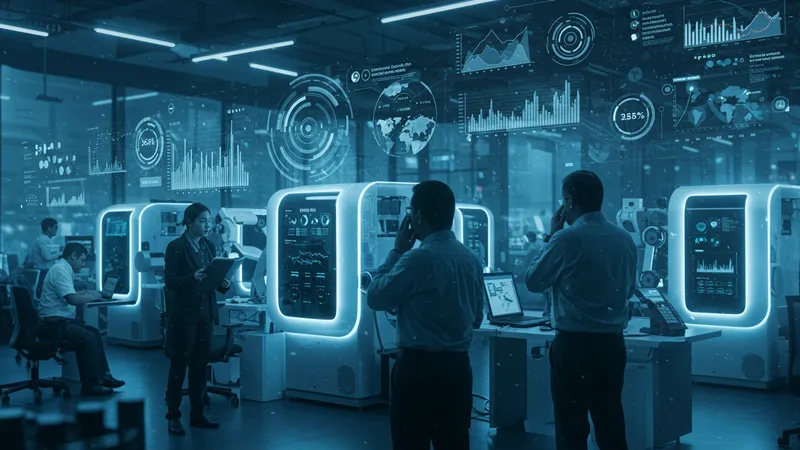
It might surprise you that in industries ranging from agriculture to manufacturing, AI is taking over jobs traditionally seen as unautomatable. But that’s not even the wildest part—Mexico’s tech sectors are utilizing AI not just for efficiency, but for innovation on an unprecedented scale.
In border regions, cross-sector collaboration between startups and tech firms is creating a veritable AI hub. These innovations aren’t just changing production methods; they’re redefining the very expectations and skills required of the workforce. Yet, the true implications of this transformation are only beginning to emerge. What happens next shocked even the experts…
Mexico is rapidly becoming a key player in the global AI arena. With investments pouring in from Silicon Valley to Mexico City, the speed at which AI technologies are being adopted is staggering. This isn’t due to mere happenstance; Mexico's youthful tech-savvy population is eager to embrace change, setting the stage for explosive growth. But there’s one more twist that’s making this adoption particularly unique…
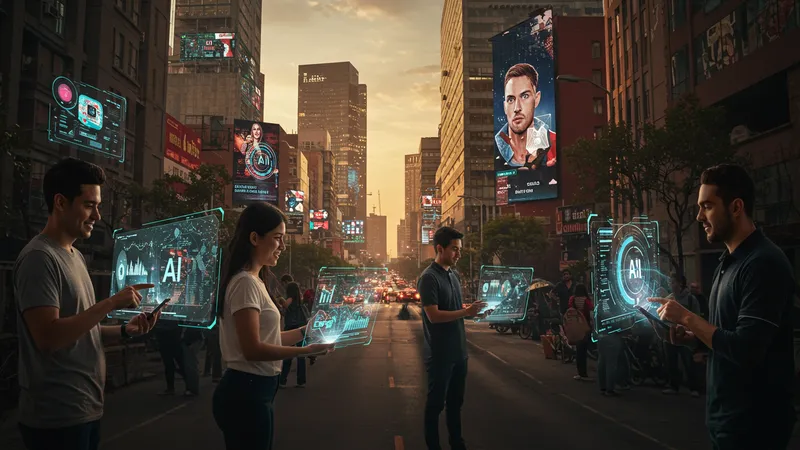
The tech industry in Mexico has become a magnet for AI talent. Despite global tech layoffs, Mexican developers and engineers are finding abundant opportunities in this evolving landscape. The competitive edge Mexico offers is its adaptability—companies can rapidly integrate new technologies without the red-tape found elsewhere. However, this rapid transformation brings its own challenges, especially in regulation and ethical AI usage.
Government policies are trying to catch up with industry innovation. Recent legislation around data protection and AI ethics is just the beginning. Policymakers have started to focus on how AI can be harnessed for public good, raising questions about transparency and accountability. What you read next might change how you see this forever…
There’s a blossoming movement of grassroots developers in Mexico using AI to tackle local problems—like using machine learning for environmental conservation or employing AI algorithms to predict and prevent social issues. As these initiatives gain traction, it becomes clear that AI in Mexico is not just about industry, but a societal transformation. And that revelation is just the tip of the iceberg…
AI isn't just carving out its space in urban tech hubs—it’s reaching deep into traditional Mexican industries. Agriculture, a cornerstone of the nation’s economy, is experiencing a radical transformation with technology-driven farming practices. Drones, IoT devices, and AI-powered analytics are increasing yields and efficiency while reducing waste and costs. But agriculture is just the beginning of this AI revolution…
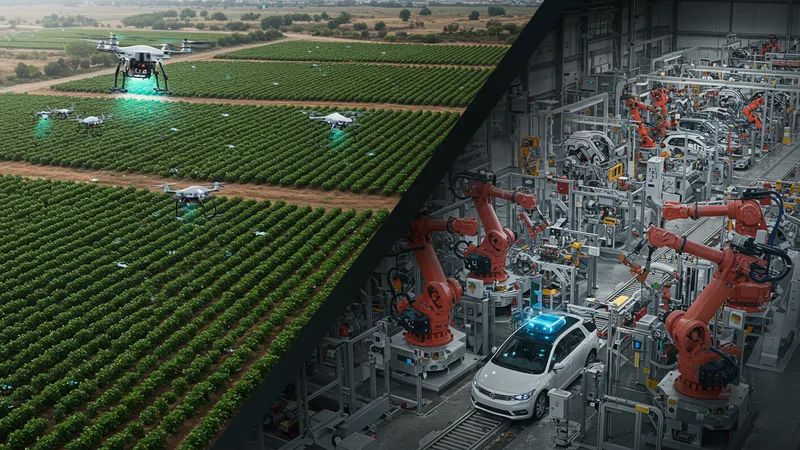
Mexico’s automotive industry, long seen as a manufacturing powerhouse, is utilizing AI for everything from production line enhancements to developing self-driving car technologies. Companies like VW and Nissan in Mexico are incorporating AI-driven predictive maintenance systems that not only optimize performance but also reduce downtime significantly. Yet, there's another industry quietly revolutionized by AI…
Within the tourism sector, AI is enhancing personalized experiences. From AI-driven chatbots for customer service in hotels to smart logistic solutions for tour operations, the impact is profound. These advances are not just enhancing efficiency but reshaping business models to focus more on personalized and sustainable tourism. Still, one surprising sector has embraced AI with unexpected results…
The financial services industry in Mexico is leading with tech-enabled innovations. AI algorithms are used for credit scoring, fraud detection, and personalized banking services, attracting significant foreign investments. As digital transformation deepens, it’s clear that AI isn’t just an add-on but a core element redefining the industry. And the most unexpected twist is yet to unfold…
As AI automates routine tasks, the skills required in the workforce are shifting dramatically. This evolution demands a paradigm shift in education and training programs across the country. Traditional manual skillsets are being supplanted by digital literacy and AI fluency. But this isn’t about replacing human jobs entirely—it’s about augmenting them with technology…
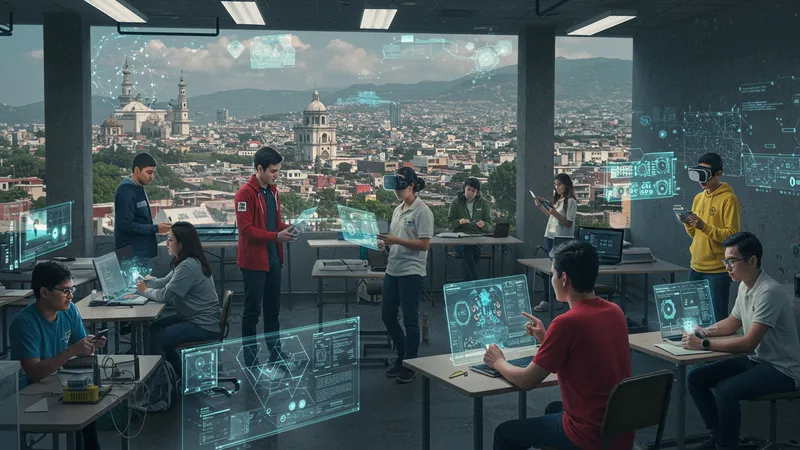
The rise of AI is fueling the need for new roles such as AI trainers, ethics specialists, and data analysts. These roles intertwine human creativity with machine efficiency, creating new opportunities for those willing to adapt. The challenge lies in bridging the gap between current skills and future demands. Innovative training programs are sprouting across Mexico to address this gap, yet much remains to be done.
Local educational institutions are evolving to meet these demands by integrating AI and tech courses into their curricula. Partnerships between universities and tech companies are fostering a new generation of skilled workers ready for the digital age. However, integrating such progressive changes into traditional education systems poses significant hurdles, especially in rural areas.
There’s an increasing focus on reskilling older workers, ensuring they've not left behind in the AI wave. Government and private-sector initiatives are emphasizing ongoing learning and adaptability, critical components in thriving within an AI-driven landscape. What happens next could redefine what career success looks like in the age of AI…
AI’s ripple effects are not confined to the corporate world; they extend throughout the broader Mexican society. Economic inequality is at risk of widening if technological advantages are not evenly distributed. The pressure is on to find holistic solutions that ensure everyone benefits from technological advancements. But this challenge also presents an opportunity…
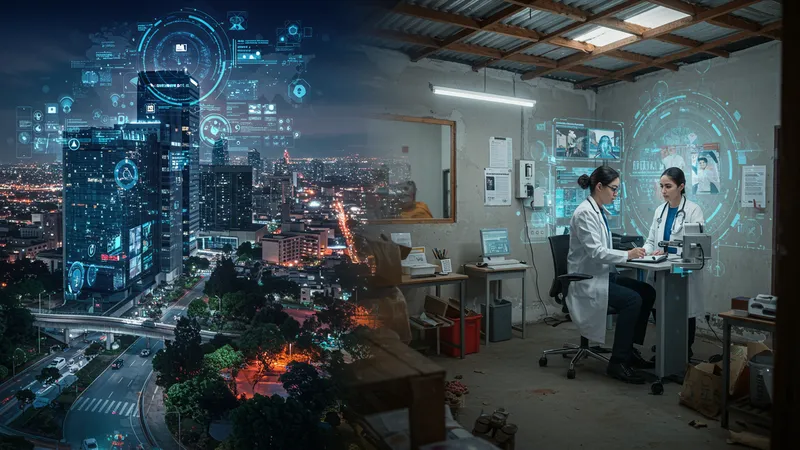
AI in healthcare is revolutionizing access and treatment options. Telemedicine powered by AI has made remote diagnostics and consultations more accessible, particularly in under-resourced rural areas. This democratization of healthcare is a critical step towards reducing inequality. However, it also demands sustainable policy support to maintain its momentum.
The environmental impacts of AI are equally transformative. AI technologies are applied in creating efficient water management systems and reducing energy consumption, contributing significantly to sustainability efforts. Mexico's commitment to greener cities benefits vastly from these AI-driven innovations, offering a roadmap for balancing industrial growth with environmental stewardship.
As AI continues to influence social dynamics, its role in community engagement is growing. Local governments are employing AI-driven insights to craft policies that address community-specific issues. The potential for AI to refine governance and enhance citizen satisfaction is immense, but its success hinges on transparency and trust. The final reveal might just turn the AI conversation on its head…
Despite its rapid integration, AI in Mexico is commonly misunderstood. Many perceive AI as a job terminator or as a distant, unfathomable concept. Disproving these misconceptions is crucial in fostering a nuanced understanding of AI's true capabilities and limitations. But the real picture of AI is much more complex and multifaceted…
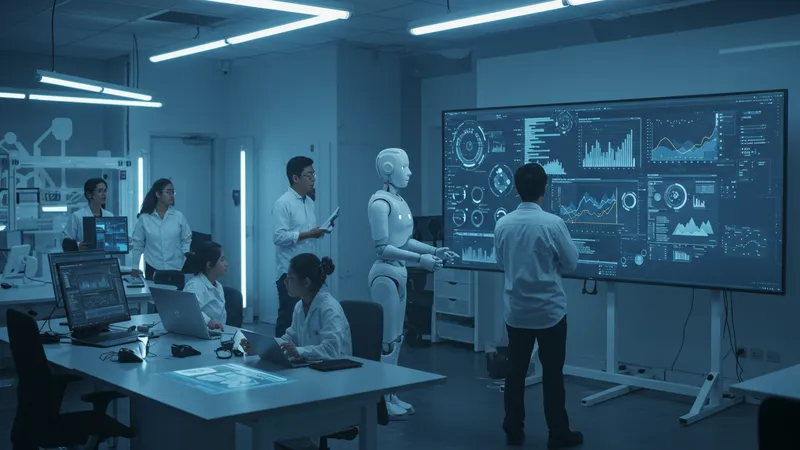
One major myth is that AI operates independently of human influence. In reality, behind every AI innovation, there is a human guiding its development. This collaboration highlights the fact that AI is an enhancer of human decision-making, not a replacement. However, the potential for misuse necessitates vigilant regulation and ethical oversight.
Another prevalent misconception is the idea of AI as universally beneficial or damaging. The truth is, its impact varies greatly depending on implementation and context. While it holds transformative potential, ensuring that AI advancements benefit society broadly requires deliberate and considerate integration strategies.
AI is also often seen as purely technical, but its influence on humanities, arts, and culture is increasingly significant. From virtual art installations to AI-curated concerts, creativity knows no bounds. Embracing AI in cultural expressions opens up new opportunities for artists and intellectuals. The conversation around AI is evolving—and what's unfolding next is perhaps the most intriguing chapter yet…
The rapid evolution of AI raises existential questions about the future of work in Mexico. As automation becomes more pronounced, the traditional 9-to-5 job paradigm is being reevaluated. This new technological reality demands adaptability, resilience, and foresight. But are we truly ready to embrace such a seismic shift…?
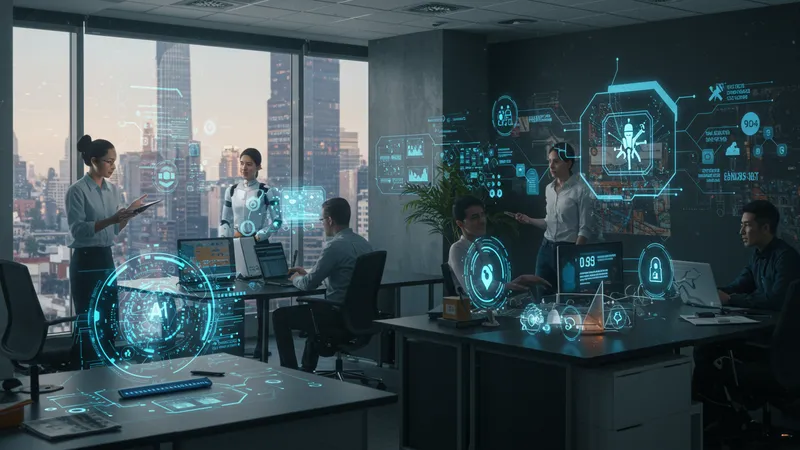
AI is transforming not just roles, but entire industries. The gig economy has soared as AI enables more flexible and diverse employment opportunities. However, this also leads to questions about job security and employee rights. The balance between convenience and fairness is delicate, requiring innovative solutions.
Gig platforms powered by AI are proliferating, providing real-time matching services that connect workers with clients based on specific skill sets. This instant availability favors those who can quickly adapt and diversify their skills. But it also raises ethical questions about data privacy and income stability.
The ambitious vision for smart cities in Mexico includes AI as a central player. These urban landscapes promise enhanced mobility, efficient resource management, and improved quality of life. By leveraging AI in urban planning, cities aim to curate environments that anticipate and respond to citizens' needs effectively. Yet, the road to smart cities poses its own array of challenges that aren't fully appreciated just yet…
The dual nature of AI’s impact on employment—creating new roles while phasing out others—drives a significant discourse. In Mexico, sectors like tech and finance are experiencing a boom in AI-related job creation. However, this has caused growing pains in more traditional professions that AI is automating. The tug of war between displacement and opportunity is at the heart of AI adaptation…
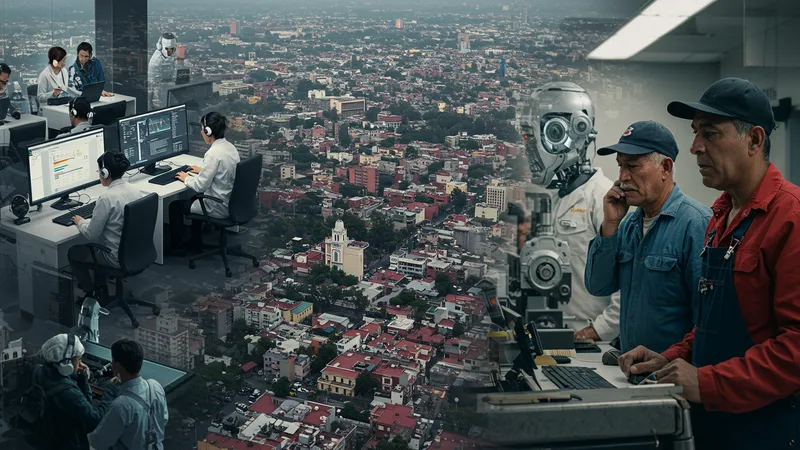
As AI systems take on predictive and analytical roles, the demand for roles such as data scientists and machine learning specialists skyrockets. Mexico is increasingly seen as a breeding ground for such tech talent. Nevertheless, these new jobs require an educational shift towards STEM fields, which isn't progressing rapidly enough to meet demand.
Conversely, the displacement seen in industries such as manufacturing triggers socioeconomic challenges. Communities reliant on manual labor face job loss without the skill sets needed for AI-enhanced roles, risking economic imbalance. Therefore, national strategies focusing on upskilling and reskilling are critical to mitigating these disparities.
Multinational corporations investing in Mexico are pivotal in shaping this balance. By supporting local innovation and working closely with educational institutions, they contribute to a sustainable tech ecosystem. However, there’s still much to learn in aligning economic growth with social responsibility—a challenge and a chance to redefine progress altogether…
As AI technology continues to evolve, ethical considerations take on increased significance. In Mexico, discussions around AI ethics are beginning to surface, focusing on fairness, accountability, and transparency. Establishing ethical guidelines is essential to ensure that AI benefits all layers of society without amplifying existing biases. But achieving this balance is a formidable challenge…
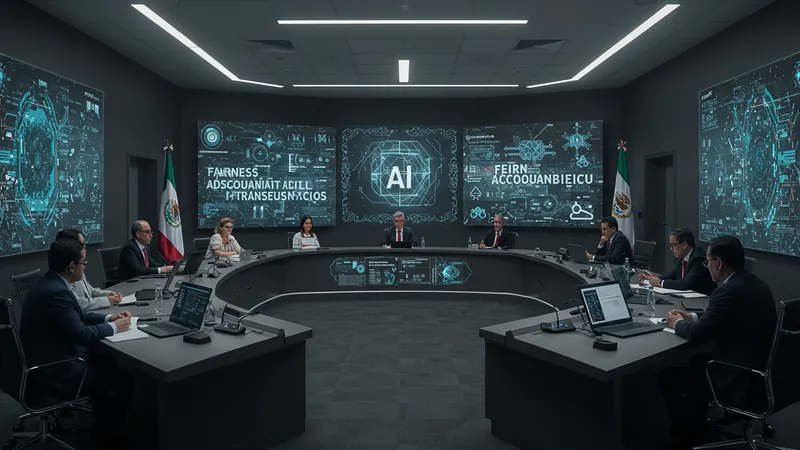
AI governance in Mexico is still in its infancy, with laws and guidelines being formulated to keep pace with technological advances. Collaboration with international AI ethics bodies and local stakeholders is crucial to crafting comprehensive policies. Yet, this collaboration must respect cultural contexts and local needs—if it is to succeed.
Data privacy is one of the most pressing ethical issues. AI applications in Mexico, particularly those that handle sensitive information, must comply with rigorous standards to protect user privacy. Innovative encryption and data anonymization techniques are part of the solution, but ultimately, it is norms and education driving compliance and trust.
The potential for AI misuse in surveillance, discriminatory practices, or misinformation also calls for vigilant regulation and public awareness. Creating an ethical tech landscape is about more than compliance; it's about instilling a culture of responsibility and transparency—a mission still unfolding as Mexico finds its place in the global AI dialogue…
Collaborative efforts are essential for nurturing a robust AI ecosystem in Mexico. Partnerships between governments, industries, and academic institutions drive innovation and competitiveness. These alliances foster a dynamic environment where ideas, resources, and expertise converge. But what makes these partnerships so uniquely effective in Mexico?
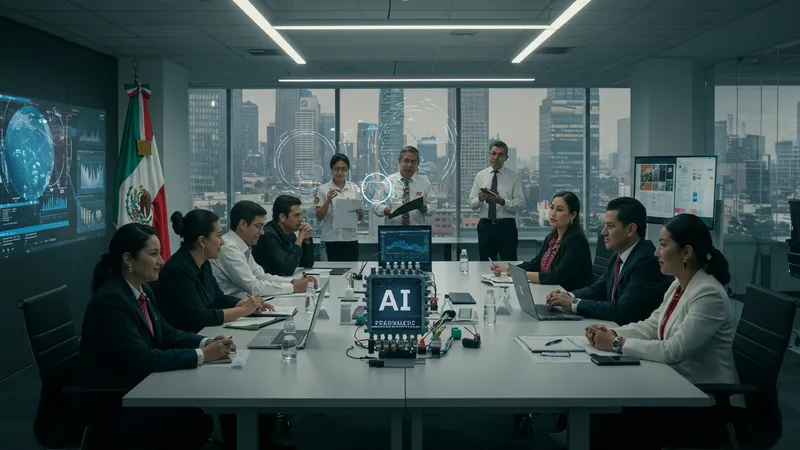
International collaborations with tech giants provide startups and researchers in Mexico with access to cutting-edge tools and global markets. Such opportunities expedite learning and innovation while attracting foreign investment. However, these partnerships must ensure reciprocity to drive true, long-term benefits for the Mexican tech landscape.
Local collaborations play an equally critical role, with industry-academia partnerships advancing R&D and human capital development. Universities are incubating future innovators by integrating real-world AI applications into their curricula. These synergistic endeavors are not only expanding capabilities but also cultivating a culture of entrepreneurship.
Public-private partnerships are pivotal in driving policy frameworks supporting AI development. By aligning goals and pooling resources, such collaborations fortify infrastructure and create conducive environments for AI growth. Nevertheless, balancing competitive advantage with shared prosperity remains an ongoing challenge, one that promises to shape the future of AI in Mexico…
Beyond economics and technology, culture and creativity are essential components of AI development in Mexico. The country's rich cultural tapestry serves as a fertile ground for diverse AI applications that span art, music, and local traditions. These cultural creations underline AI's potential as a tool of cultural preservation and innovation…

AI-driven art installations and music compositions highlight the synergy between human creativity and machine precision. Such projects, often collaborations between artists and technologists, challenge the boundaries of traditional cultural expression, drawing international attention and acclaim.
Furthermore, AI's role in preserving Mesoamerican languages and documents marks an important cultural milestone. Machine learning systems capable of translating and archiving language offer a lifeline to preserving linguistic heritage. It’s an inspiring application of AI that brings the past to life while safeguarding it for future generations.
As AI celebrates and innovates on Mexican culture, it also injects new life into tourism and storytelling. Virtual reality experiences powered by AI allow users globally to engage with Mexican culture in immersive, interactive ways. The intersection of AI and culture promises to expand horizons and possibilities—a frontier where technology becomes inherently human…
Mexico is burgeoning with AI innovations that are breaking new ground on the global stage. From tech startups creating bespoke solutions to larger enterprises developing scalable technologies, the Mexican AI landscape is one of rapid evolution and breakthrough inventions. However, what sets these innovations apart is their focus on localized applications that resonate worldwide…
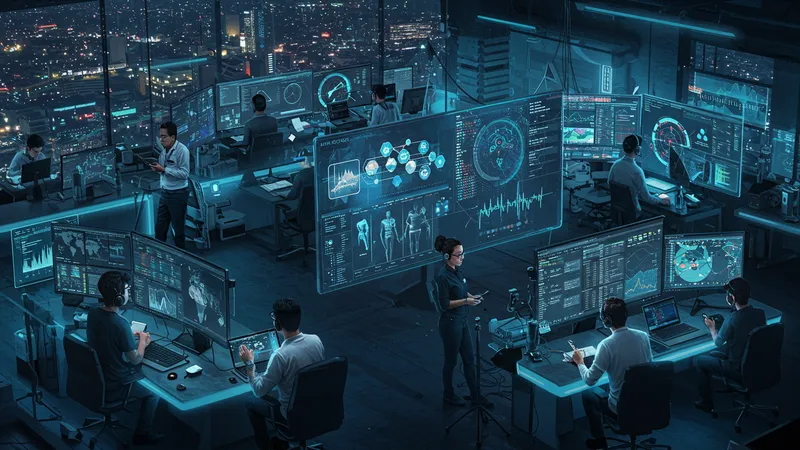
The healthcare sector, for example, benefits from AI systems predicting disease outbreaks and optimizing supply chain efficiency. Such capabilities illustrate the potential of Mexican innovation to address pressing global health challenges, turning attention toward this hub of technological progress.
In agriculture, AI-powered drones and smart irrigation systems dress the systemic inefficiencies familiar to many agricultural economies. These innovations not only enhance productivity but also promote sustainable farming practices—a priority as global populations and environmental strains increase.
Moreover, the rise of AI solutions in logistics and urban planning spotlights Mexico's strategic role in these sectors. By developing systems capable of predicting and optimizing transport traffic and resource allocation, Mexican entrepreneurs pave the way towards smarter cities worldwide. These innovations are not only setting trends but are bold declarations of capability and ambition…
AI’s influence extends beyond industry and innovation into the daily lives of Mexican citizens, altering everyday experiences in surprising ways. From how we shop to how we travel, AI is seamlessly integrating into consumer habits—sometimes it’s so subtle, we may not even notice its presence. Yet, its impact is profound…

Smart home technology powered by AI has become commonplace in urban households across Mexico. Home assistants, security systems, and climate control technologies provide convenience and security, offering a glimpse into the connected homes of the future. These systems also highlight the growing importance of consumer privacy and data management.
In the realm of shopping, AI-driven recommendation systems tailor retail experiences to individual preferences. E-commerce platforms leverage machine learning to predict consumer behavior and curate personalized product selections, enhancing user satisfaction and engagement.
The advent of AI in travel, through apps that predict itinerary plans or provide real-time language translations, is transforming how Mexicans experience the world. These applications streamline travel, making it more accessible and enriching—a testament to the transformative power of AI in daily life. But the full breadth of its consumer impact continues to unfold…
The AI revolution in Mexico represents more than just a wave of technological change; it signifies a profound shift in how industries and individuals envision the future. As AI technologies expand and mature, questions arise about the sustainability and permanence of these changes—will AI be a lasting cornerstone or merely a passing phase…?
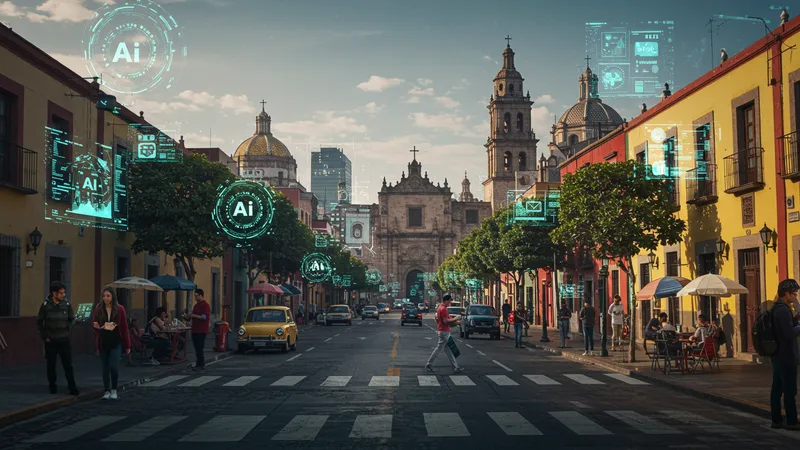
Undoubtedly, AI has already cemented its role prominently in tech-focused industries, providing innovative solutions that improve efficiency and expand market potential. This growing confidence suggests a permanent fixture. However, long-term success requires ongoing adaptation and responsible integration across all sectors.
Amidst geopolitical and economic changes, AI's place in Mexico's strategy for growth must prioritize inclusivity. Ensuring that benefits reach all people rather than a select few could dictate AI's long-lasting impact and societal acceptance. This calls for thoughtful policy and ethical implementation frameworks, steering AI towards being a force for positive global engagement.
Ultimately, AI's trajectory in Mexico is indicative of broader societal shifts towards technological interdependence and innovation. What may appear today as a rapid diffusion of novelty can become the foundation for enduring progress. And therein lies the clue to the future—where AI transitions from the extraordinary to the extraordinarily commonplace…
As the AI saga in Mexico unfolds, it reveals an incredible capacity for transformation across all facets of life. But it also presents critical challenges that call for a harmonious blend of innovation and tradition, technology and ethics. The journey of AI is a poignant reminder of human ingenuity and adaptability—the final lesson that demands active participation rather than passive observation.
If this narrative struck a chord, share this story, bookmark it—it might just be the catalyst you need to dive deeper into the incredible journey of AI in Mexico. The next chapter is yours to write, in a world where AI doesn’t replace us but elevates us. Ready to make your move?